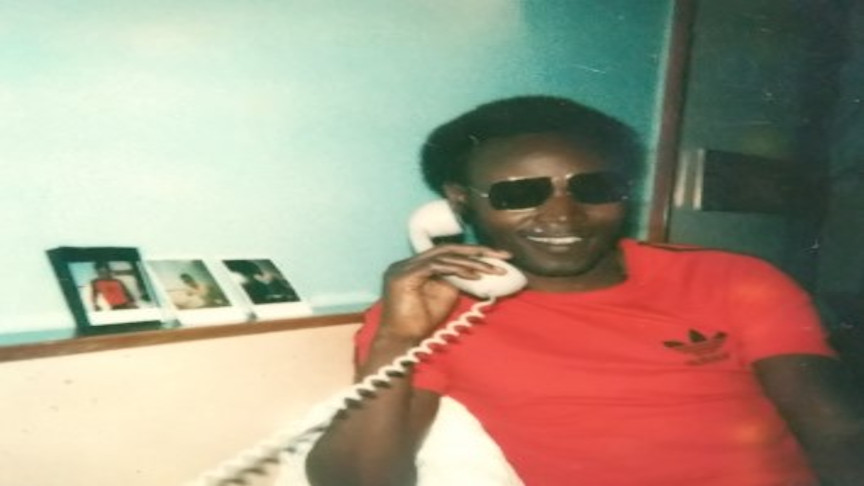When a Football Great met an African Icon

Win or Lose
December 3, 2024
Athletics and Post-Athletics – Simion Biwott’s Journey
April 2, 2025When a Football Great met an African Icon

By Satish Sekar © Satish Sekar (December 16th 2024)
Making Football History
The Confédération Africaine de Football (CAF) honours the highest achievers in African football tonight. Often forgotten is the contribution of former footballers, not only to African football, but also to Africa and to football itself. Football played a huge role in the liberation struggles of many African countries.
The story of Algeria’s FLN Team is a case in point that we will detail in future articles. It is a lesson for today’s youth who measure the success of African football by its exports to Europe’s top leagues. The members of that team already played in Europe at some of France’s top teams. They sacrificed their opportunity to play at the 1958 FIFA World Cup for France, choosing to leave France and use their football to highlight Algeria’s cause, and Africa’s too.
Four years later the FLN Team had completed its mission to highlight Algeria’s cause through their football. The FLN Team became Algeria’s national team. Some of their team, including the great Rachid Mekhloufi returned to France to play. He was welcomed back. Zambia was another country where football contributed to the country’s independence – the battle was won during Tokyo’s first Olympiad in 1964.
A year earlier Zambian football icon the late Ginger Pensulo, along with his Roan United teammate, Ken Banda made history – they were the first footballers from their country to earn trials in English football with Leeds United, then in England’s Second Division (I didn’t cover the story at the time as I was 1 month old when their 6-week trial began.
In 1962 Zambia’s National Football League chose to ignore the colonial administration’s racist laws and organised a multi-racial league. It helped to demonstrate that black people could not only play football but be involved in all aspects of the game. It demonstrated that not only could black people and white people get along, but that what they had both been taught from childhood about each other was arrant nonsense. Football showed in practice that Zambians were ready for independence and its football was ready to be showcased. That process would be aided by a football great. The late John Charles, who had distinguished himself with Leeds United, Juventus and of course Wales.
The Historic Tour
June 11th 1967 was an historic day for Zambian football. Prior to the first match of the three-match tour at Ndola’s iconic but sadly defunct fortress of Zambian football the Dag Hammarskjöld Stadium, the Gentle Giant, as John Charles was known shook hands with Zambia’s first Republican President and lifelong football enthusiast, the late Kenneth Kaunda. The result didn’t matter as much as the effect.
John Charles’ team won the first match, but the tour had a very important result for Zambian football. Although Charles was clearly past his prime, he was still a football great, and the Zambians impressed. The late Dick Chama would make his debut for the KK11 the following month. He would become a legend of Zambian football. Another who impressed was a young giant in the making of Zambian football.
Godfrey Chitalu was playing for Kitwe United at the time. The following year he rewrote the record books, scoring a remarkable 81 goals in the calendar year to set new world records for the most number of goals in a season and calendar year. He took those records from one of the greatest footballers who ever lived, Pelé (Edson Arantes do Nascimento). The late Brasilian legend’s record of 75 goals had lasted a decade.
The Ones That Got Away
But it could have been different. Before Chitalu announced his arrival, his performances, like that of Chama impressed Charles team and Cardiff City Football Club. Among the members of Charles’ Team was Cardiff City legend Don Murray. He played against Chama and Chitalu. He almost played with them too, but Chama and Chitalu became the ones that got away. Nevertheless, this tour meant that Zambian talent had arrived on the world stage, but few of today’s Zambians are aware of the John Charles Team’s tour – they should be.
The John Charles Team’s tour fostered further interest in Zambian talent before Derby County’s interest in signing Chitalu, once during the reign of Dave McKay – that was kyboshed by Kaunda himself. Kaunda refused to allow Chitalu to leave Zambia – he was too important to Zambian football. It had nothing to do with Zambian talent not being wanted in Europe. The Gentle Giant and his team had an impact on Zambian football – one that should be acknowledged, even now.


